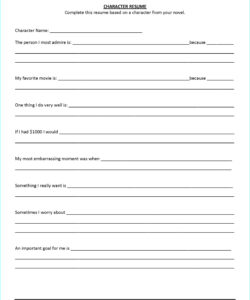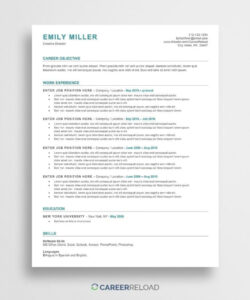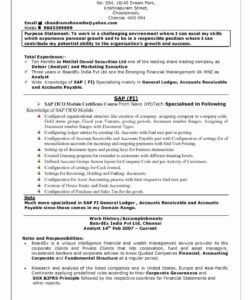Research experience is a valuable asset to have on your resume, especially if you’re applying for a job in academia, research, or science. In this article, we’ll discuss how to list research experience on your resume and provide some tips to help you stand out from the crowd.
First, it’s important to understand what research experience is and why it’s important. Research experience can include anything from conducting experiments in a lab to analyzing data to writing research papers. It demonstrates your ability to think critically, work independently, and solve complex problems – all skills that are highly valued by employers.
How to List Research Experience on Your Resume
When listing research experience on your resume, there are a few key things to keep in mind:
1. Start with a Strong Heading
Your heading should clearly state that you have research experience. For example, you might use a heading like “Research Experience” or “Research Assistant.”
2. Include Relevant Details
Under your heading, include relevant details about your research experience. This might include the name of the project or study, the name of the professor or researcher you worked with, and the dates of your involvement.
3. Highlight Your Accomplishments
Don’t just list your responsibilities – highlight your accomplishments. For example, did you develop a new research method? Did you publish a paper based on your research? Did you present your findings at a conference? These are all accomplishments that should be highlighted on your resume.
How to Write a Strong Introduction
Your introduction should be brief but informative. It should give the reader an idea of what to expect from your resume and why you’re a good fit for the job. Here are a few tips to help you write a strong introduction:
1. Start with a Hook
Your introduction should grab the reader’s attention right away. You might start with a surprising statistic, a thought-provoking question, or a compelling anecdote.
2. Highlight Your Relevant Skills
Your introduction should highlight the skills and experience that make you a good fit for the job. For example, if you’re applying for a research position, you might highlight your experience conducting experiments, analyzing data, and writing research papers.
How to Write a Strong Conclusion
Your conclusion should wrap up your resume and leave a lasting impression on the reader. Here are a few tips to help you write a strong conclusion:
1. Summarize Your Key Points
Your conclusion should summarize the key points of your resume. This will help the reader remember your qualifications and accomplishments.
2. End with a Call to Action
Your conclusion should end with a call to action. For example, you might encourage the reader to contact you for an interview or to learn more about your research experience.
FAQs
Q: How do I list research experience on my resume if I don’t have any?
A: If you don’t have any research experience, you can still list relevant coursework or projects that demonstrate your research skills. For example, if you took a statistics course and conducted a research project, you might list that on your resume.
Q: How do I list research experience on my resume if it’s not related to the job I’m applying for?
A: If your research experience isn’t directly related to the job you’re applying for, you can still list it on your resume. Focus on the transferable skills you gained from your research experience, such as critical thinking, problem-solving, and attention to detail.
Q: How do I list research experience on my resume if it’s from a long time ago?
A: If your research experience is from a long time ago, you can still list it on your resume. However, you should focus on the skills and accomplishments that are most relevant to the job you’re applying for.


